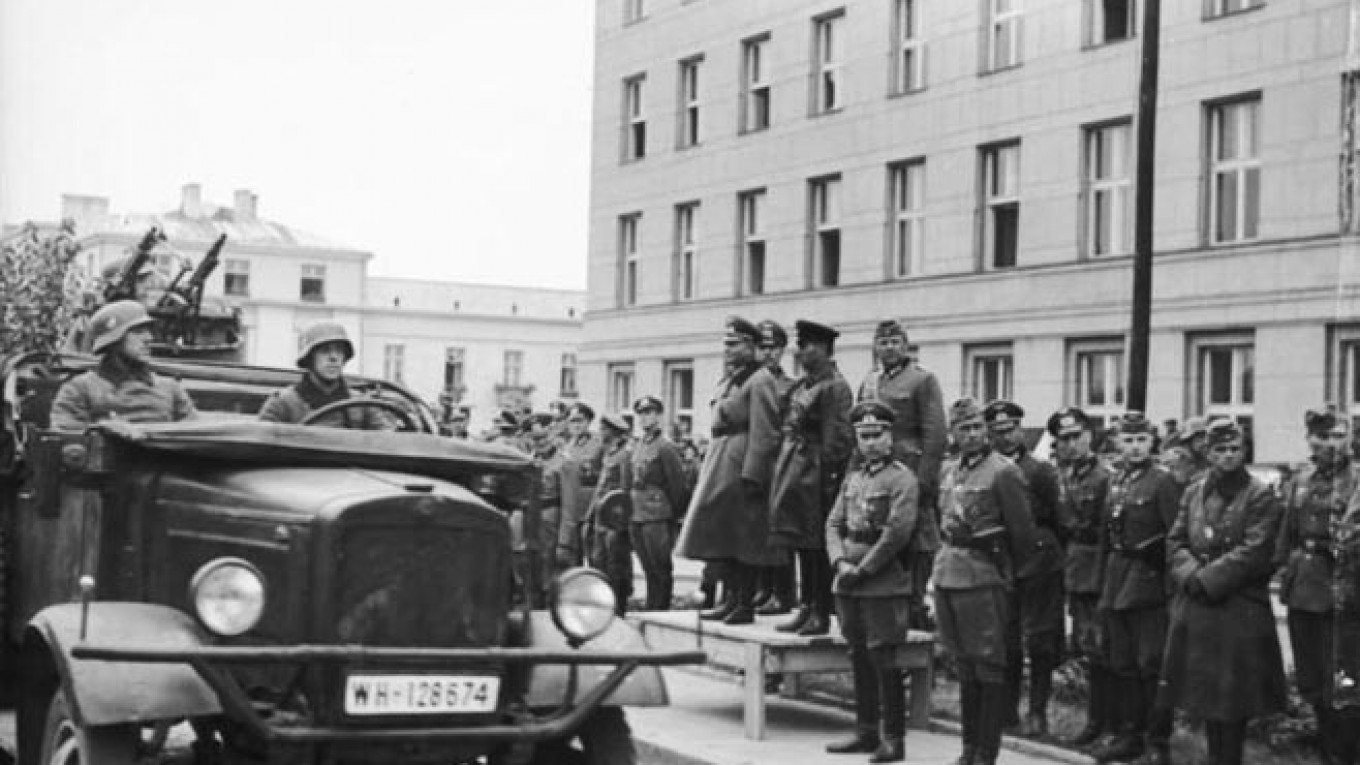Karma is a belief that past actions return to haunt us. Once a bad deed is perpetrated, bad karma casts a shadow over the future, shaping it and inflicting inevitable retribution.
The 1939 Molotov-Ribbentrop Pact between Nazi Germany and the Soviet Union, signed a week before Hitler invaded Poland and resulting in the Soviet annexation of eastern Poland, three Baltic states and parts of Romania, as well as a war of aggression against Finland, was a heinous crime. It created bad karma that is coming to haunt Russia now, 75 years later.
Today's Russia is crawling with Stalin's apologists who claim that preternaturally wise "Uncle Joe" needed to take over all those territories to push Soviet borders further west. However, instead of fortifying those new borders, Stalin's secret police began terrorizing and deporting the local population, sowing so much hatred and fear so that the people there ended up welcoming the invading Nazis as liberators.
Stalin willfully ignored warnings that German troops were massing on Soviet borders. When Hitler did strike on June 22, 1941, the official Soviet statement termed the German attack as "verolomno," meaning "breaking the trust."
The Red Army and the Wehrmacht held a joint parade at Brest-Litovsk after successfully dismembering Poland, demonstrating to the rest of the world their close ties and military might. The NKVD executed 22,000 experienced Polish military officers at Katyn in 1940, hardly a sign that Stalin was preparing to fight the Germans. On the contrary, the Soviet Union came close to being drawn into World War II on the side of Nazi Germany and fighting against Western allies had Hitler's brutal 1941 invasion not put an end to any such possibility.
The Soviet Union bore the brunt of fighting in World War II, and the Soviet people made a decisive contribution to the eventual defeat of Nazism. Its heroic struggle and its role in liberating Europe earned it tremendous goodwill around the world. The strength of communist parties in Italy and France, and their popularity among leading Western intellectuals in the 1950s and 1960s, stemmed from those wartime experiences.
But once the war was over, the Soviet Union refused to give back any of the territories it had grabbed while in an unholy alliance with Hitler, effectively re-validating the secret protocols of the Molotov-Ribbentrop Pact. And the unfought war against Western democracies seems to have remained stuck in the Soviet subconscious, enduring throughout the Cold War.
It let up only in 1991 with the collapse of communism. But even as the official rhetoric moderated, neo-Nazism — an ideology that was unthinkable in the Soviet Union — began to spread insidiously in the Russian ultra-nationalist circles. Swastikas, SS uniforms and salutes with cries of "Heil Hitler!" became common attributes at the annual Russian March and similar gatherings of extremists.
Over the past decade, the Kremlin has been ratcheting up anti-Western rhetoric, and suddenly it has gelled with ultra-nationalist ideology. The hasty occupation of Crimea, complete with a bogus referendum conducted under the barrel of the gun, seemed to follow Hitler's Sudetenland scenario. And now the actions of Russian quislings on Ukrainian territory are transforming the black and yellow St. George ribbon from a symbol of victory over fascism into a symbol of 21st-century aggression.
Russia is edging dangerously toward a war with the Western alliance. Could it be that the Molotov-Ribbentrop karma is coming into play 75 years later?
Alexei Bayer, a native Muscovite, lives in New York. His detective novel "Murder at the Dacha" was published by Russian Life Books in 2013.
A Message from The Moscow Times:
Dear readers,
We are facing unprecedented challenges. Russia's Prosecutor General's Office has designated The Moscow Times as an "undesirable" organization, criminalizing our work and putting our staff at risk of prosecution. This follows our earlier unjust labeling as a "foreign agent."
These actions are direct attempts to silence independent journalism in Russia. The authorities claim our work "discredits the decisions of the Russian leadership." We see things differently: we strive to provide accurate, unbiased reporting on Russia.
We, the journalists of The Moscow Times, refuse to be silenced. But to continue our work, we need your help.
Your support, no matter how small, makes a world of difference. If you can, please support us monthly starting from just $2. It's quick to set up, and every contribution makes a significant impact.
By supporting The Moscow Times, you're defending open, independent journalism in the face of repression. Thank you for standing with us.
Remind me later.






